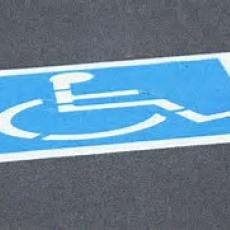Written by Alison H. Samarin
Valley small-business owners know the name Tanya Moore, the San Jose lawyer known for filing hundreds of “drive-by” ADA lawsuits all over the state for the last several years. She was even featured in a CBS “60 Minutes” piece about lawsuit abuse last December. The news program discussed Ms. Moore’s tactic of recruiting plaintiffs to visit businesses they otherwise would not visit in order to look for minor ADA violations and asking her clients to recruit their disabled friends to do the same thing.
Well, now there’s a new lawyer filing the lawsuits in the Central Valley, carrying Ms. Moore’s torch. As it turns out, he works for the same firm! Different lawyer, same story. It appears that Ms. Moore has re-structured her practice, which at one time operated under the name “Moore Law Firm.” Just a few weeks before the “60 Minutes” piece ran, she opened “Mission Law Firm, APC” where Zachary Best works, representing many of the same serial-plaintiff clients.
Mr. Best has recently filed more than a dozen new federal ADA access cases against businesses located in Fresno, Madera, Visalia, Parlier, and North Fork. His professional ADA clients are Jose Acosta, Jose Trujillo, and Hendrick Block, three men who say in their complaints that they get around using wheel-chairs, walkers, or electric scooters. The “barriers” allegedly encountered are aisles lacking sufficient clearance for wheelchairs, curb ramps that are difficult to maneuver, soda dispenser buttons that are difficult to see, inoperable locks in restroom stalls, lack of proper signage for the accessible parking stalls, transaction and food counters too high, heavy doors, cracked concrete on the path of travel, and partially blocked aisles and sidewalks.
ADA lawsuits continue to devastate local small businesses. The State of Arizona recently took some extraordinary measures against one of its prolific ADA attorneys, Peter Strojnik, by summarily dismissing over 1,000 of his cases as abusive. His son, Peter K. Strojnik, is still operating in here in California using a similar business strategy. In recent years, even the notoriously plaintiff-friendly California Legislature has enacted some small measures to make these drive-by lawsuits more difficult, like extra filing requirements for “high frequency litigants,” those that are among the handful of plaintiffs who file the vast majority of ADA complaints as a money-making scheme for their lawyers. The Americans with Disability Act remains an important milestone law in our country, and has ushered in many wonderful changes. Nonetheless, action is still needed on the state and federal levels to prevent these ADA shake-down lawsuits.
In the meantime, the best defense against these suits will remain taking appropriate compliance measures. Businesses should work with access specialists to make sure their facilities fully comply with the law and educate employees to insure that daily operations never compromise accessibility. If sued, a business should seek legal counsel. There may be several ways to fight these lawsuits.

